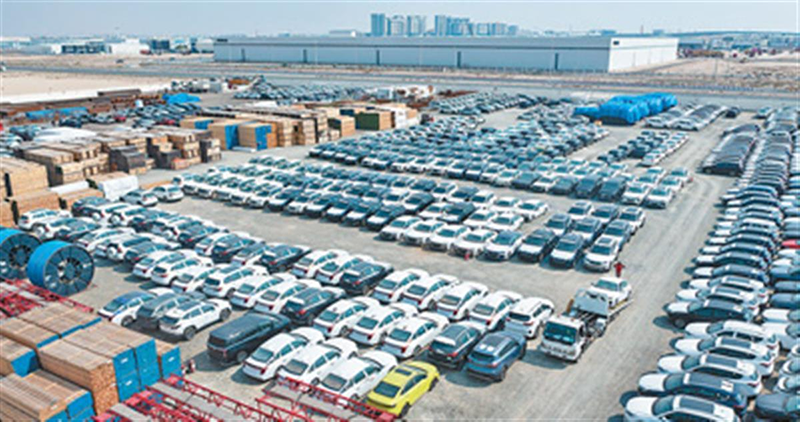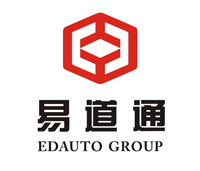On May 21, Chinese automobile manufacturer BYD released the pure electric double-decker bus BD11 equipped with a new generation blade battery bus chassis in London, England.
Foreign media said that this means that the red double-decker bus that has been plying London's roads for nearly 70 years will become "Made in China", marking a further step in the overseas expansion of domestically produced cars and breaking the so-called "overcapacity" rhetoric in the West.

Appeared in the “One Belt, One Road” documentary
On July 24, 1954, London's first red double-decker bus began taking passengers on the road. For nearly 70 years, these buses have been a part of London people's lives and are as classic as Big Ben, Tower Bridge, red telephone boxes and fish and chips. In 2008, it was also unveiled as London's business card at the closing ceremony of the Beijing Olympics.
In recent years, with the popularity of new energy vehicles, this iconic means of transportation is also in urgent need of upgrading. To this end, the London Transport Authority has repeatedly tested pure electric buses produced by local manufacturers, but the results were not satisfactory. At this moment, BYD from China came into the sight of the London authorities.
According to reports, London Go-Ahead Transport Group will award BYD a contract to produce more than 100 BD11 double-decker buses, which will be put into operation in the second half of this year. Models adapted to the needs of different regions of the UK will be launched in the future.
It is reported that BYD BD11 has a maximum passenger capacity of 90 people, a battery capacity of up to 532 kWh, a range of 643 kilometers, and supports dual charging. The new-generation blade battery double-decker bus chassis carried by BYD BD11 integrates the battery with the frame, which not only significantly reduces the weight of the vehicle, increases the battery life, but also improves the stability and controllability of the vehicle.

This is not the first time that British buses have become "Made in China". In fact, BYD has supplied around 1,800 electric buses to British operators since 2013, but most of them are co-manufactured with British partners. The model "BD11" involved in this contract will be manufactured in China and imported to the UK by sea.
In 2019, in the "One Belt, One Road" documentary "Building the Future Together" broadcast by CCTV, the "China Red" bus was already on display, shuttling through the streets and alleys of the UK. At that time, some media commented that the "national treasure car" with "green energy" as its core went abroad and flew along the Belt and Road, becoming one of the representatives of "Made in China".
“The whole world is encountering Chinese buses”
On the road to transforming into a new energy industry, the automobile market structure is undergoing tremendous changes.
Data recently released by the China Association of Automobile Manufacturers shows that China's automobile exports will rank first in the world for the first time in 2023. In January 2024, China exported 443,000 cars, a year-on-year increase of 47.4%, continuing its rapid growth. The footprints of Chinese cars have spread all over the world.
Take electric buses as an example. Not only the iconic double-decker red bus in the UK has become "Made in China", but also in North America and Mexico, Chinese automakers have recently won the largest single delivery order for electric buses in Mexico so far.
On May 17, the first batch of 140 Yutong electric buses purchased by Greece from China were officially integrated into the public transportation system and began operation. It is reported that these Yutong electric buses are 12 meters in length and have a cruising range of 180 kilometers.
In addition, in Spain, 46 Yutong airport shuttle buses were also delivered at the end of May. The report shows that Yutong's overseas operating revenue in 2023 will be approximately 10.406 billion yuan, a year-on-year increase of 85.98%, setting a record for Yutong's overseas revenue. After seeing the domestic buses, many Chinese people abroad took videos and posted them on social platforms. Some netizens joked, "I heard that Yutong buses are being encountered all over the world."
Of course, other models are not inferior either. The best electric car in the UK in 2023 will be "BYD ATTO 3". Great Wall Motor's electric car brand Euler Haomao officially rolled off the production line at the new energy vehicle manufacturing base in Rayong, Thailand. Great Wall Motor's Oman distribution network was officially put into operation. Geely's Geometry The E model has become the cost-effective choice for Rwandan consumers.
At major international auto shows, hot-selling products integrating various advanced technologies are frequently released, Chinese brands shine, and China's smart electric vehicle technology is recognized by overseas markets. The Beijing Auto Show in April this year attracted the attention of the world, with various high-tech domestically produced cars appearing frequently.

At the same time, Chinese car companies have invested in and built factories overseas, giving full play to their technological advantages and launching various cooperations. Chinese new energy vehicles are popular in overseas markets, adding new luster to Chinese manufacturing.
Real data breaks the false "overcapacity" theory
Sadly, even with such eye-catching data as "ranking the world's number one", some Western politicians still put forward the so-called "overcapacity" theory.
These people claimed that the Chinese government subsidized new energy vehicles, lithium batteries and other industries, resulting in overcapacity. In order to absorb the excess production capacity, it was dumped overseas at significantly lower than market prices, which impacted the global supply chain and market. In order to "respond" to this statement, the United States once again increased tariffs on Chinese electric vehicles on May 14, from the current 25% to 100%. This approach has also attracted criticism from all walks of life.
Dennis Depp, executive of Roland Berger International Management Consulting Co., Ltd. in Germany, pointed out that the world needs to add a large amount of renewable energy capacity in the next five years to keep pace with the commitments of the Paris Agreement to combat global warming. China must not only meet domestic demand and promote the realization of the "double carbon" goal, but also make positive contributions to the global response to climate change and the realization of green development. Binding the new energy industry with protectionism will undoubtedly weaken the ability of countries to deal with climate change.
The International Monetary Fund (IMF) directly criticized the U.S. government for imposing significant tariffs on Chinese products such as electric vehicles, lithium batteries, and semiconductors, warning that it could endanger global trade and economic growth.
Even American netizens ridiculed: "When the United States has a competitive advantage, it talks about free market; if not, it engages in protectionism. These are the rules of the United States."
Jin Ruiting, a researcher at the Macroeconomic Research Institute of the National Development and Reform Commission of China, gave an example in an interview. If according to the current views of some Western politicians, if supply exceeds demand, there will be a surplus, then one country does not need to engage in trade with another country. Because the prerequisite for trade is that supply is greater than demand. Only when you have more, can you do trade. Then when you engage in trade, there will be international division of labor. So if we follow the logic of some Western politicians, the largest overcapacity is actually American Boeing aircraft, and the largest overcapacity is actually American soybeans. If you push it down according to their discourse system, this is the result. Therefore, the so-called "overcapacity" is inconsistent with the laws of economics and the laws of market economy.
Our company exports countless BYD series vehicles. Based on the concept of sustainable development, the company brings a better experience to passengers. The company has a complete range of new energy vehicle brands and provides first-hand supply. Welcome to consult.
Post time: Jun-05-2024


